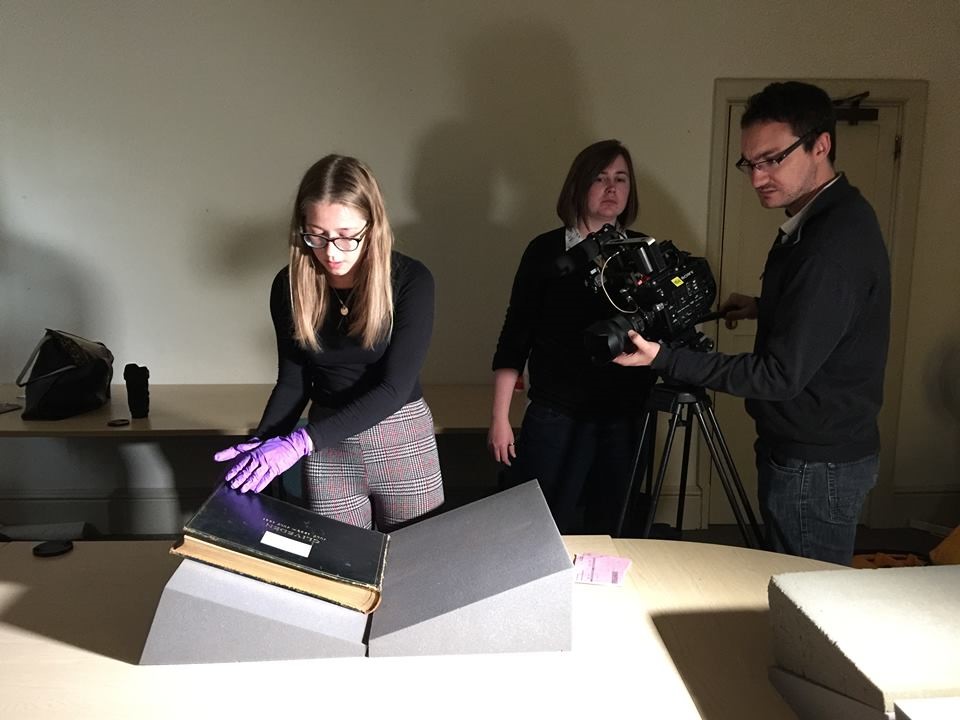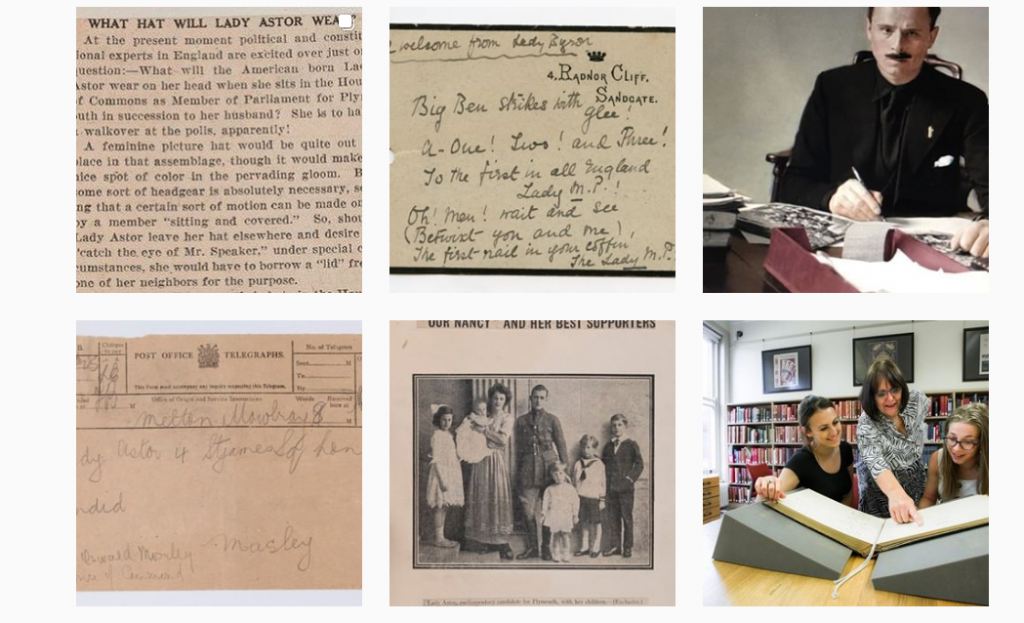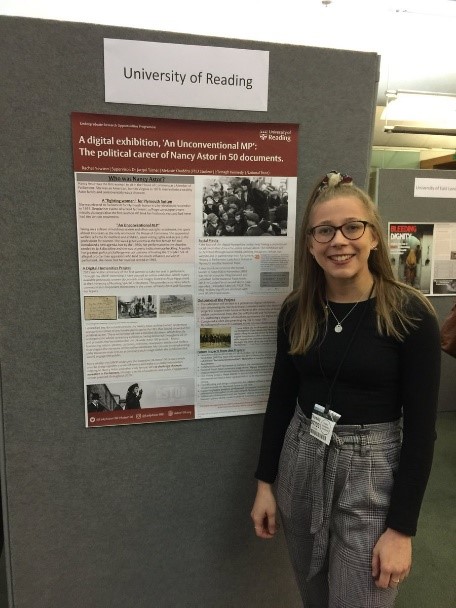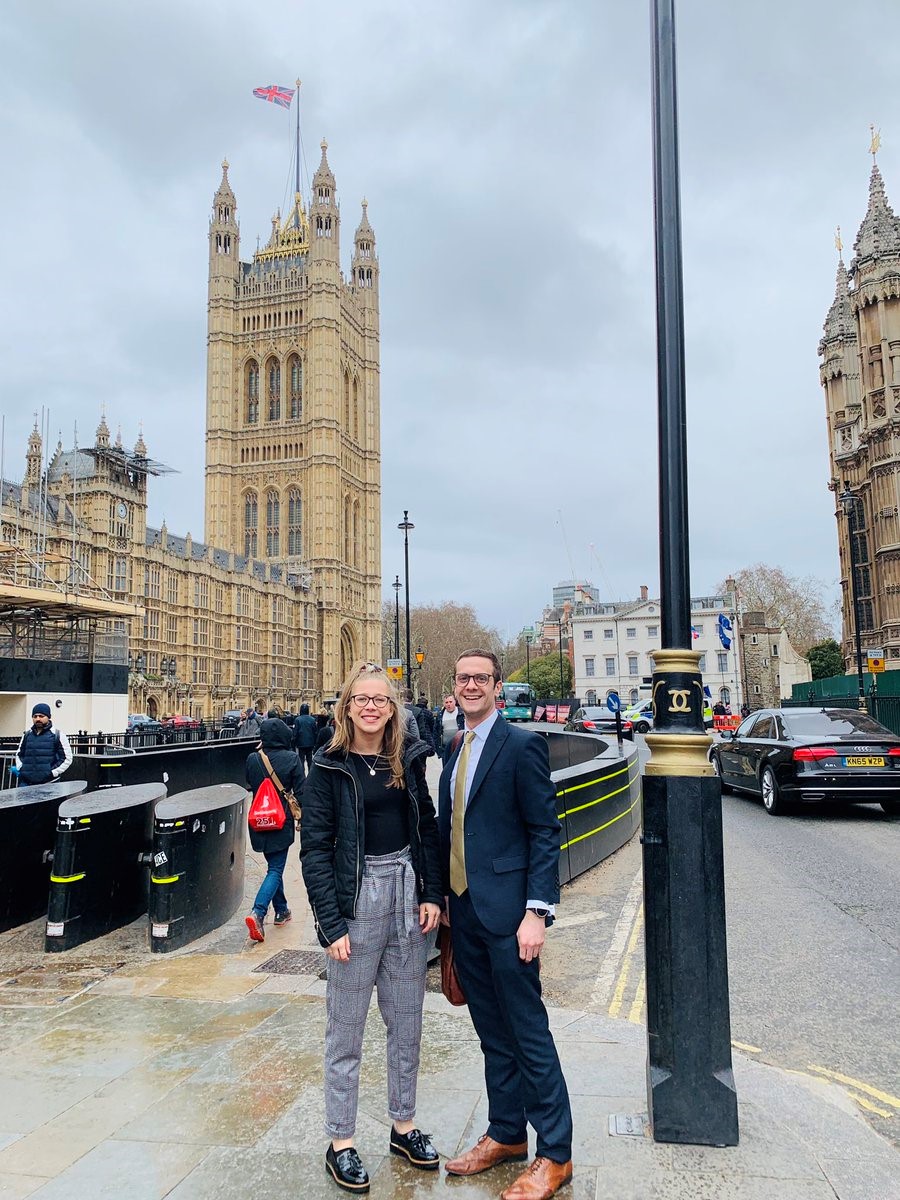Rachel Newton was one of two Reading undergraduates to take their research to Westminster last week for the annual Posters in Parliament event. Here she tells us about spending her summer sifting through Lady Nancy Astor’s papers, and what it was like to take her research back to Parliament – Nancy’s spiritual home.
On 7 March, as one of two winners of Reading’s Undergraduate Research Opportunities Programme (UROP) – a scheme which gives undergraduates the opportunity to carry out a research project over the summer break, supervised by an academic – I had the chance present my research to MPs, academics, students and Parliamentary staff at the Houses of Parliament.
My experience on UROP has been fantastic. I worked as a paid intern for 6 weeks with Dr Jacqui Turner and PhD student Melanie Khuddro on a project entitled; ‘A digital exhibition, ‘An Unconventional MP’: The political career of Nancy Astor in 50 documents’. Nancy Astor was the first female MP to sit in the House of Commons, and this November marks the centenary of her being elected.
A lifetime’s papers
Over summer 2018, I was immersed in manuscript-based primary source research at the University of Reading’s Special Collections, where the Astor Papers are held. My role was to curate an online digital exhibition using the Astor Papers.
I analysed letters, photos, petitions, political leaflets and many other sources, which were entered into a detailed database. This made it easier to narrow down the documents in terms of locating and photographing them for the exhibition. I also drafted pithy text to accompany social media posts, as the exhibition is being delivered through Twitter and Instagram, as well as being kept permanently on our ASTOR100 website.

Rachel exploring the Astor papers in the University’s Special Collections.
This project directly underpins the wider ASTOR100 project, based at the University of Reading alongside partnerships with the National Trust, City of Plymouth and Parliament. I have also been offered a job permanently on the ASTOR100 team as an Impact Assistant. As a result of the project I have written my undergraduate dissertation about Nancy Astor. Moreover, I plan to continue my research into the Astor Papers through the MA history course at Reading in September this year. I had never considered taking an MA before this project, but UROP and the Astor Papers has really opened my eyes. The Astor Papers are such a unique and extensive source, and I believe more people should take the chance to carry out research on them.

A Westminster audience
As one of the two UROP winners I will have the chance to present my research at the British Conference of Undergraduate Research at the University of South Wales in April. On 7 March I also had the opportunity to attend the ‘Posters in Parliament’ event in Westminster along with UROP manager Tom McCann and the other UROP winner, Daniel Mercer.

We got through the airport style security at Portcullis House just in time for the first session in the Thatcher Suite. The group included students from universities across the country. We had a talk from Norman lamb MP, Chair of the Science and Technology Committee, about the impact of research. Then Sky Yarlett, (Senior Education and Engagement Officer (East of England) at UK Parliament), spoke to us about the structure of parliament and how, as researchers we can implement change within Parliament. We then got a quick opportunity to share our research with other undergraduate researchers and it was interesting to see how different the research projects were.
After a quick trip to the Millicent Fawcett statue, it was time to present my research in the Atlee Suite. I was overwhelmed by the interest in my poster. I could barely catch my breath between sessions of explaining my research to different people. I spoke to students, professors, parliamentary staff; it was exciting that so many were interested.
It was a great experience to be able to explain my research as well as the impact that it has had, and is still having. Even though, to start with, some people did not know who Nancy Astor was, they definitely did by the time I had finished talking to them!
It was fitting that my research on Nancy Astor was able to make its way to its spiritual home, in Parliament, where Astor was MP for Plymouth Sutton from 1919-1945 and I was very honoured to take it there.
Reading’s Undergraduate Research Opportunities Programme (UROP) gives students the opportunity to gain real research experience with an academic at the university. Each six-week project has been specially designed to provide a genuine insight into the research environment and can make a significant contribution to an undergraduate’s transferable skills and employability. The deadline for students to apply for one of this summer’s projects is 5 April 2019.
Read our blog post about the other winner of last year’s UROP Showcase, Daniel Mercer, whose research project investigated how cancer drug prescribing could be improved.

